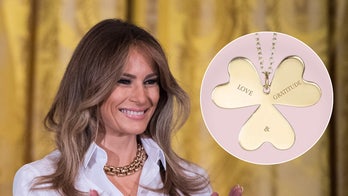Despite aspirations to join the European Union, Serbia has appointed two pro-Russia officials sanctioned by the United States into its new government. The move reflects persistent close ties between Belgrade and Moscow, raising concerns about the Balkan nation's commitment to Western integration.

Serbia's new government, led by Prime Minister Miloš Vučević, has taken office with two pro-Russia officials, Aleksandar Vulin and Nenad Popović, holding key positions as vice-premiers. The appointments highlight Belgrade's ongoing close ties with Moscow despite its declared bid to join the European Union.

Vučević's government gained support in a 152-61 vote in parliament, with 37 lawmakers absent. The appointments, which include former foreign minister Ivica Dačić as interior minister, sparked a heated two-day debate.
President Aleksandar Vučić's ruling Serbian Progressive Party holds a comfortable majority after an election in December that was marred by reports of irregularities. Despite Western pressure, Vučić has refused to join sanctions against Russia over its invasion of Ukraine, though Serbia has condemned the aggression.
Vučević reiterated that Belgrade does not intend to impose sanctions on Russia and "cannot and will not give up" its friendship with Moscow. However, he stressed that integration into the EU remains a "strategic goal" and that Serbia is interested in "the best possible" relations with the United States.
Filip Ejdus, a security analyst and Belgrade university professor, described the new government's composition as "spin" designed for the West, Russia, and domestic voters. He believes it sends a message to the EU not to press Belgrade too hard on democracy, rule of law, and Kosovo if they want to keep Serbia in their orbit. Simultaneously, it signals a willingness to strengthen the strategic partnership with Russia.
The United States imposed sanctions on Vulin in July, accusing him of involvement in illegal arms shipments, drug trafficking, and misuse of public office. The U.S. Treasury Department alleged that he used his authority to facilitate illegal arms shipments and was involved in a drug trafficking ring. Vulin has received two medals of honor from Russia.
Popović, a businessman and former government minister, has been accused of using his Russia-based businesses to enrich himself and gain close connections with Kremlin leaders.
Opposition lawmaker Radomir Lazovic criticized the inclusion of these individuals in the government, arguing that they have harmed the citizens of Serbia.
The U.S. sanctions are designed to counter Russia's "malign" influence and attempts to undermine peace and stability in the Balkans. The West has increased efforts to integrate the region into its fold, fearing that Russia could stir unrest to divert attention from the war in Ukraine.
Serbia's falling democracy record has pushed the country away from EU integration, explained Ejdus. Reports of election fraud in December triggered street protests and clashes. Vučić's authoritarian tendencies have been tolerated by the EU to avoid instability in their backyard.
The new government's appointment of pro-Russia officials reflects Serbia's balancing act between its aspirations to join the European Union and its historical and cultural ties to Russia. It remains to be seen how these appointments will impact Belgrade's relations with the West and its EU integration prospects.










